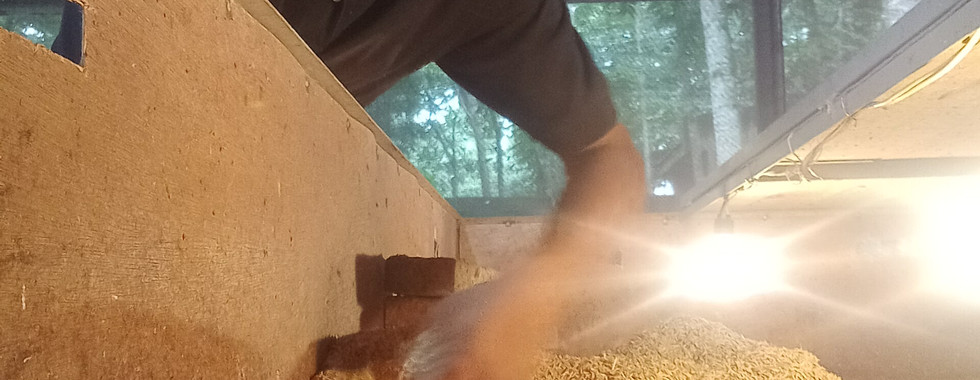NDMU Reestablishes Paraiso Farm for a Sustainable and Productive Agricultural Future
- Notre Dame of Marbel University

- Dec 15, 2024
- 2 min read
Nestled in the heart of Barangay Paraiso, the 35-hectare Paraiso Farm of Notre Dame of Marbel University (NDMU) holds a story of purpose and potential. Acquired in the 1980s to serve the requirements of the university’s Bachelor of Agriculture Technology and other related programs, the farm once stood as a living space—vibrant with learning, planting, and productivity.
Today, NDMU is once again taking meaningful steps to revitalize Paraiso Farm, an effort that began around 2022, not just to bring back its agricultural roots but to make it relevant, sustainable, and socially impactful.
Guided by the vision of Br. Paterno S. Corpus, FMS, EdD, NDMU’s President, the farm is being reimagined into a center for innovative and sustainable farming, aligned with the needs of Region XII, a region deeply rooted in agriculture.
“Region 12 is a highly agricultural region,” shared Br. Corpus. “We need to create an environment that supports the needs of our farmers. The goal is to make the farm sustainable, address issues in local production, and educate the farming community.”
To fulfill this vision, NDMU implements income-generating programs and agriculture-related VOCTECH (TESDA) training courses at Paraiso Farm. These programs aim to build farmers’ capacities, encourage multi-crop production, promote the use of organic fertilizers and sprays, and ultimately contribute to food security in the region.
Training Programs with Purpose
Among the TESDA-accredited training programs to be offered are:
Organic Fertilizer Production
Animal Production (Poultry, Swine, Small Ruminants)
Agricultural Crops Production
Agro-entrepreneurship
Pest Management and Rice Machinery Operation
Initially, five core programs are implemented, with documentation underway for TESDA accreditation. These programs also create opportunities for K–12 work immersion and on-the-job training, ensuring students gain practical exposure while contributing to the sustainability of the farm.
NDMU also plans to participate in the Joint Delivery Voucher Program (JDVP) to help make training more accessible to interested learners.
Moving from Single-Crop to Sustainable Systems
A critical aspect of the initiative is shifting the mindset from single-crop farming to integrated, multi-crop systems, which allow farmers to maximize land use and reduce dependency on one type of yield. By using organic practices and building the local knowledge base, the university hopes to create ripple effects in the broader agricultural community.
A Farm with a Mission
More than just a revival, this initiative is a reaffirmation of NDMU’s commitment to building character, developing competence, and respecting culture, this time, through the lens of agricultural innovation and social transformation.
The Paraiso Farm is no longer just a space, it is a platform to educate, empower, and enrich the lives of farmers, students, and communities in South Cotabato and beyond.
























Comments